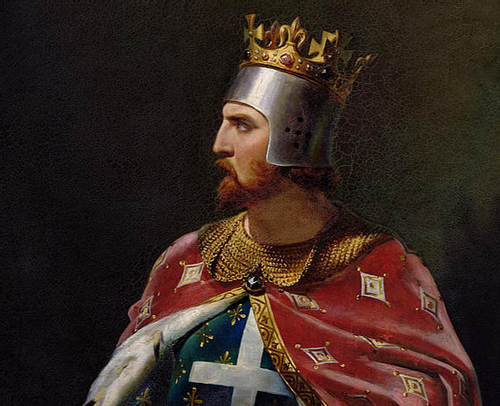King Richard I of England was born on the 8th of September 1157 in the King’s House (later Beaumont Palace). He was the 3rd legitimate son of King Henry II of England and Queen Eleanor of Aquitaine; Eleanor’s 6th child as she had previously been married to King Louis VII of France and birthed his 2 daughters. The boy was christened Richard on the 21st of September and was given into the care of a wet nurse. Bertran de Born, who was one of the major Occitan troubadours of the 12th century, called Richard Oc-e-Non (Yes-and-No), while some later writers referred to him as Richard the Lionheart, Cœur de Lion, as he is still known in France.

The Lionheart was Eleanor’s favorite among all of her offspring. The mother and her son had a very close relationship during Richard’s lifetime, although he didn’t meet her and his father often in childhood because the protocol dictated certain distance between the royal parents and their offspring. It seems that the roots of Eleanor’s special attitude towards Richard may lie in some prophecies given her, which she was eager to accept as a revelation of future events. In her book “Eleanor of Aquitaine: By the Wrath of God, Queen of England”, Alison Weir writes about Richard’s birth:
“It seems likely that Richard was designated the heir to Poitou and Aquitaine, in place of his deceased brother William. Ralph of Diceto implies that this son was special to Eleanor from birth, recalling one of the ancient prophecies of Merlin, which in the twelfth century were widely believed to apply to Henry II and his family: “The eagle of the broken covenant shall rejoice in her third nesting.” Eleanor was the eagle, the broken covenant the dissolution of her marriage to Louis, and the third nesting was the birth of her third son, Richard.”
Richard took after King Henry II in his appearance and constitution, although he was his mother’s son in all other aspects. Maybe this was the reason why the old monarch did not like Richard, not wishing to name Richard his successor even when he became the eldest surviving Plantagenet son after the death of Henry the Young King. At his older age, Richard saw his royal parents more frequently. When he was only seven years old, he left England and joined Eleanor and Henry in Normandy, together with his several other siblings. During the next several years, he spent some time with his father in Anjou and other continental Angevin territories. Richard didn’t return to England and stayed at his mother’s side in Aquitaine starting from 1168.
Marion Mead writes about Richard in her book “Eleanor of Aquitaine. A Biography Book”:
“He [Richard] was tall in stature, graceful in figure; his hair between red and auburn, his limbs were straight and flexible; his arms rather long, and not to be matched for wielding the sword or for striking with it, and his long legs suited the rest of his frame. Physically, except for his height, Richard owed his looks to Henry: the reddish hair, ruddy complexion, his athletic prowess, and bold expression. In all other ways, he was Eleanor‘s son.
Indeed, Richard was everything she had always sought in a man: a born warrior, a handsome chivalrous knight, a poet and musician, an intellectual. From his mother and his half sister Marie, he had learned to please a woman, and already he could compose delicate, sensuous verse and pay compliments in song to a lady. Blooming in the soil of Aquitaine as though he had been born there, he spoke the langue d’oc whenever possible, and despite his early years in England, cared nothing for the kingdom. He thought it no great honor that his brother would someday wear a king’s crown; all Richard wanted was Aquitaine.”
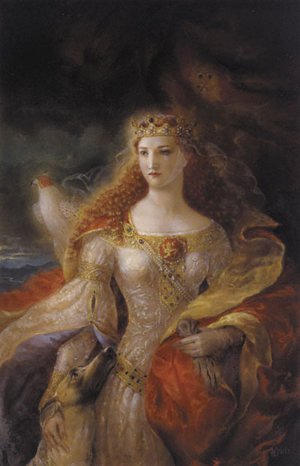
Because of the changeable Aquitanian politics and capriciousness of Poitevin vassals, Henry and Eleanor decided that she would become almost a resident in Aquitaine and govern the duchy with her firm and experienced hand. Of course, Eleanor kept Richard close to herself: he was her heir, whom she wanted to be associated with the governance of her duchy from his early youth. In Aquitaine, Eleanor and Richard became closer. She endeavored to find emotional fulfillment in her affectionate relationship with her favorite child as her marriage to Henry II was slowly deteriorating. Richard’s adoration for his mother was born in his early adulthood, and he would carry this feeling throughout his life, until his death in Châlus-Chabrol.
At the royal court in Poitiers, Richard received the best princely education under Eleanor’s guidance. He immersed himself into the sophisticated, refined culture of Aquitaine, profoundly influenced by courtly love, troubadour culture of southern France, and Medieval chivalry. He himself wrote songs and poems in Occitan, although there are no surviving materials nowadays, except for one of his songs he composed during his captivity in Austria. He did not speak and even practice English, so Norman-French and Occitan became his languages of preference and habit. Young Richard could be considered the great model of a chivalrous knight.
Robert Lacey writes in “Great Tales from English History” about Richard’s love for music:
“Richard was music-mad. He loved to conduct the choir in his chapel, and he composed ballads in the style of the courtly troubadours of Aquitaine, where he grew up and which he always considered his home.”
Richard experienced his first battles when he, already Duke of Aquitaine, and his brothers – Henry the Young King and Geoffrey – rebelled against their father in 1173. Though a successor to Henry II, Henry the Young King nevertheless was not allowed to exercise real power and was not given as many lands as he wanted, so he was eager to fight against his father. The participation of Henry’s other sons in the revolt might be explained by Eleanor’s crafty plots against her husband. Nonetheless, the revolt failed despite the support from many nobles of Anjou, Poitiers, and Aquitaine, as well as from King Louis VII of France. Richard and his brothers begged Henry III for forgiveness and were reconciled with him. Eleanor was far less very lucky: she was captured and imprisoned on her husband’s orders since that time onwards, until his death in 1189.
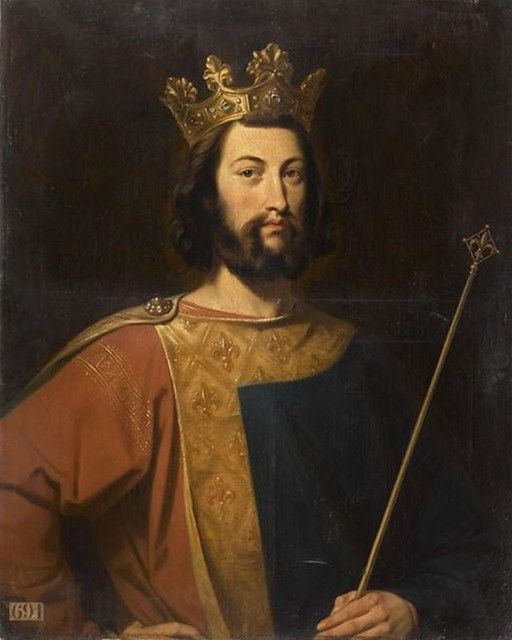
John Gillingham writes about the revolt in his book “The Angevin Empire”:
“What was unexpected, indeed shocking, was that Henry’s wife Eleanor would join the revolt against her husband, and would send Richard and Geoffrey to join their brother at the court of France. It was only natural that those neighbouring princes who had suffered at Henry’s hands should seize the opportunities presented by the family crisis. Hence the revolt of Henry’s wife and sons triggered a greater war, involving the kings of France and Scotland, the counts of Flanders, Boulogne and Blois, as well as a sprinkling of rebels in Poitou, Normandy and England.
In the end, Henry emerged victorious. He won on the continent partly because he captured Eleanor at an early stage in the war, and partly because, as the richest king in western Europe, he had the cash resources which enabled him to hire mercenaries – usually known as Brabangons or routiers – on a scale which his enemies could not match. In Britain he owed his victory to the capture of the king of Scots in 1174. But though he won, the events of 1173-74 revealed the chink in Henry’s political armour, his inability to manage his own family, and they provided the first indications that he would have to struggle to hold on to what he had.”
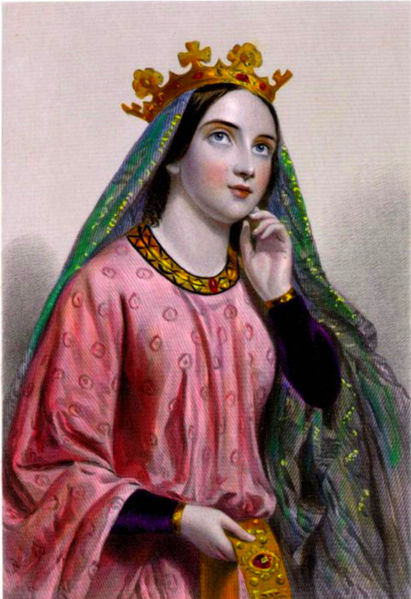

Now let’s consider Richard’s rumored homosexuality. We don’t know whether he preferred men or not. Until the mid-20th century, nobody seriously considered the Lionheart homosexual. Then an assumption was made that Richard liked sleeping with men, and it was based on the following three ideas. Firstly, Richard had no legitimate children in his marriage to Berengaria of Navarre. He did not sire many bastards either, unlike his father Henry and his younger brother John. His only known illegitimate son was Philippe of Cognac. Secondly, Richard seems to not have been interested in getting married and deserted his wife after he had returned from the Crusade. Thirdly, he had a very close and strange relationship with King Philippe II of France.
Homosexual monarchs such as King Edward II of England and probably King James I of England were married and had children, for producing an heir and securing dynastic succession was vitally important. Richard’s childless union with Berengaria doesn’t mean that he was a gay. There are other reasons why they never had a child: perhaps Berengaria was barren, or maybe her failure to conceive was the direct consequence of their estrangement after Richard’s return from his captivity in Germany. Actually, Richard was quite fond of Berengaria and wanted to marry her. Maybe he was not in love with his wife, but he did not object to the match. It seems to me that the idea of the homosexual Lionheart, which has been popular and widely discussed after the release of the movie “The Lion in the Winter” in 1968, is a product of fiction.

Some think that Richard had a homosexual relationship with Philippe II of France. There is no proof that Richard and Philippe were lovers, and I doubt that it is true. They were reported to have shared a bed when Richard paid homage to Philip in November 1187. But does that mean that they made love in that bed? In the Middle Ages, many men, even heterosexual, shared a bed to keep warmth in cold castles and houses. Besides, Philippe and Richard could slept in the same bed once to show their unity against King Henry. Richard befriended the long-time enemy of England to spite his father, with whom his relationship was too tense and difficult.
The chronicle Roger of Howden wrote in “The Annals” (it covers history from 732 to 1201.) about Henry II’s reaction to Richard’s seemingly strong attachment to Philippe:
“Alter peace was thus made, Richard, earl of Poitou, remained with the King of France, though much against the will of his father, and the King of France held him in such high esteem, that every day they ate at the same table and from the same dish, and at night had not separate chambers. In consequence of this strong attachment which seemed to have arisen between them, the King of England was struck with great astonishment, and wondered what it could mean….”
The Third Crusade is one of the main events during the reign of Richard I. The Lionheart started preparing for departure from England immediately after his coronation. Jerusalem was in the hands of the infidels, and the Pope called for all Christian kings to liberate the holy city. The new monarch needed funds for the Crusade, and it was when he demonstrated England’s meaning for him – the source of revenue and taxes to finance his military campaigns. Mere 2 days after the coronation, the king put up for sale everything he had – castles, towns, manors, lordships, offices, and so on. Even sheriffs of various counties and shires had to pay for their position in cash.
King Richard is reported to have said in those days:
“I would sell London itself if only I could find a rich enough buyer.”

Richard of England and Philippe of France left together for the Holy Land from Vézelay on the 4th of July 1190. After a long siege of Acre, the Crusaders captured the city when the garrison capitulated in July 1191. After the departure of King Philippe and Duke Leopold of Austria from the Holy Land, Richard led his armies alone and conquered the cities of Jaffa and Arsuf, expanding the borders of the Crusader States. However, Richard realized that even if he captured Jerusalem, he could not hold it. As a result, a 3-year truce was signed with Saladin, and then Richard left.
Richard is castigated for authorizing the execution of 2,700 Saracens, some of them women and children, at Ayyadieh, a hill near the city of Acre on the 20th of August 1191. The massacre became one of the most horrific events in the history of holy wars and Crusades. The Lionheart wanted to march towards Jerusalem without delay and could not have so many Muslims in train, so he made a cold and calculating decision as a military commander – an inhuman decision. But all sieges and battles during the Crusades ended with bloodshed for losers, and the Saracens also executed captured Christians who lost the Battle of Hattin on the 3rd and 4th of July 1187.
On the way from the Holy Land, Richard’s ship was shipwrecked, and then he took an inland route through the Holy Roman Empire, eventually captured near Vienna by Leopold of Austria’s men. The duke handed the English monarch to the emperor who demanded a ransom of 150,000 marks, which was twice the annual income for the English crown. As the news of her son’s troubles reached Eleanor of Aquitaine, she worked tirelessly to raise the ransom while her dear son languished in Austrian prison, probably writing songs and wallowing in self-pity.

After his return to England, Richard the Lionheart pardoned Prince John for his plots against him (mainly schemes with Philippe of France) and had his second coronation on 17th April of 1194. During the rest of his reign, Richard spent his time in the continental lands of his empire, fighting against Philippe who invaded Normandy while Richard was in the Holy Land and jailed in Austria and Germany. Ironically, the defender of a rebellious castle who managed to take Richard’s life. In April 1199, while he besieged the castle of Châlus-Chabrol, Richard rode around the castle walls wearing no body armour and protected only by a shield, and he was mortally wounded by Bertrand de Gourdon from the crossbow in the right shoulder in revenge for slaying his family. Richard died with his 77-year-old mother Eleanor by his side, on the 6th of April 1199. The Lionheart was buried at Fontenvrault Abbey, while his heart was interred in Rouen.
King Richard I of England is the only English monarch who was given the honor of a statue outside the Houses of Parliament in London – Richard Coeur de Lion, who sits majestically on horseback, wearing chainmail and brandishing his broadsword. The Lionheart was a celebrated warrior king, the bravest Christian ruler in his lifetime, and he was loved by the people of England despite the fact that he was an absentee king who spent only about 6 months of his 10-year reign in England and who supposedly was ready ‘to sell London’ to raise funds for his Crusade. History glamorized Richard’s reign, cocooning every tale about him and his deals into an air of romance, nobility, and chivalry. Richard still remains the embodiment of England’s chivalrous knight.
In reality, Richard was not the best King of England, and he was not an ideal knight either. It is difficult to call Richard an English ruler because he did not live in England, loving Aquitaine with all his heart and using England for his fundraising activities. His English was highly accented, and he preferred to speak Norman-French with his courtiers and warriors. I think Richard did not intend to live in England from the beginning after his accession to the throne regardless of what he planned to do after his return from the Crusade. I like what Robert Lacey writes in his book “Great Tales from English History” about the English people’s attitude to the Lionheart:
“The abandonment of reason that national feeling can provoke seems the likeliest explanation of England’s fondness down the years for the warlike Lionheart – a character venerated enough to be played on the screen by Sir Sean Connery. In reality, England’s hero king did not speak English. His native language was French, and he saw himself as an Angevin, building up the French empire of his father Henry and his mother, Eleanor of Aquitaine.”
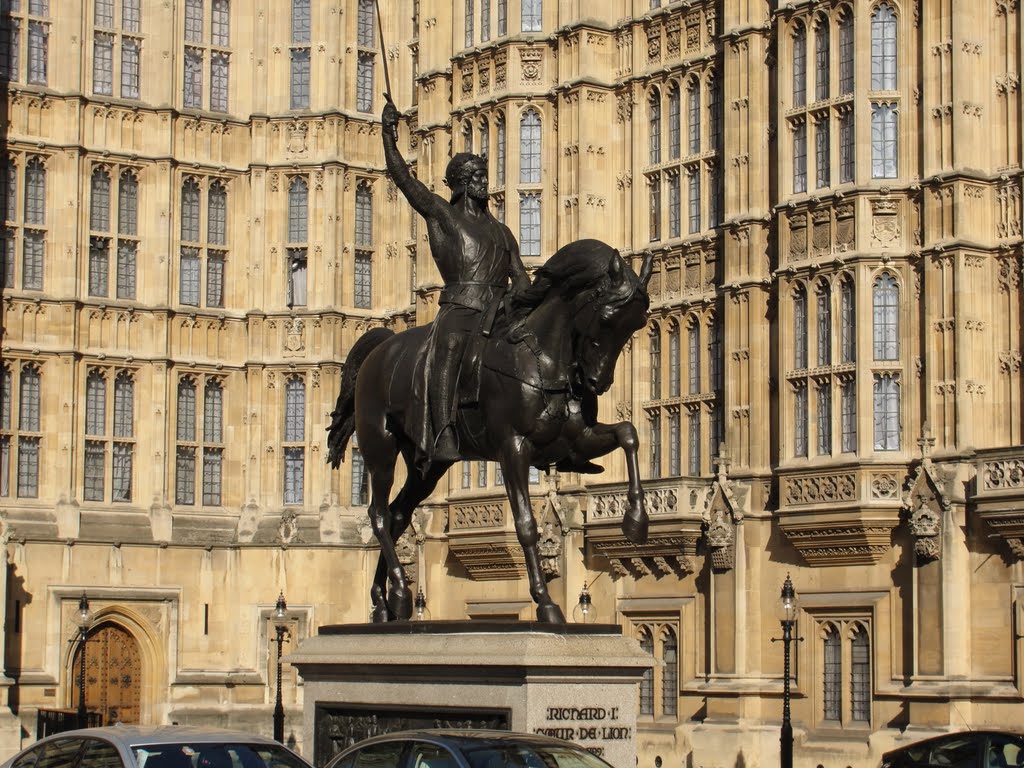
Richard was a cruel man, but medieval kings needed to be ruthless and at times bloodthirsty because humanity tends to lose a battle with ruthlessness when power is wielded. The Lionheart’s fame as a warrior owed as much to his organisational skills as to his bravery, and he was indeed a competent general. In a way, fighting can be considered one of the most important endeavors for medieval monarchs to preserve the borders of a kingdom and their throne, and Richard did it well.
Philippe II of France behaved more like a great monarch, although he learned to be a capable commander only in the second half of his life. Philippe was a brilliant and cunning politician, one who over years annexed most of the continental Angevin holdings following Richard’s death. Richard’s courage and valor are undeniable, his military skills were truly great, but the Lionheart was not a long-term, good politician despite his stellar education and his intelligence. But Richard was a king and man of his time; a military man who lived in an avaricious and ruthless era.
All images are in the public domain.
Text © 2020 Olivia Longueville

